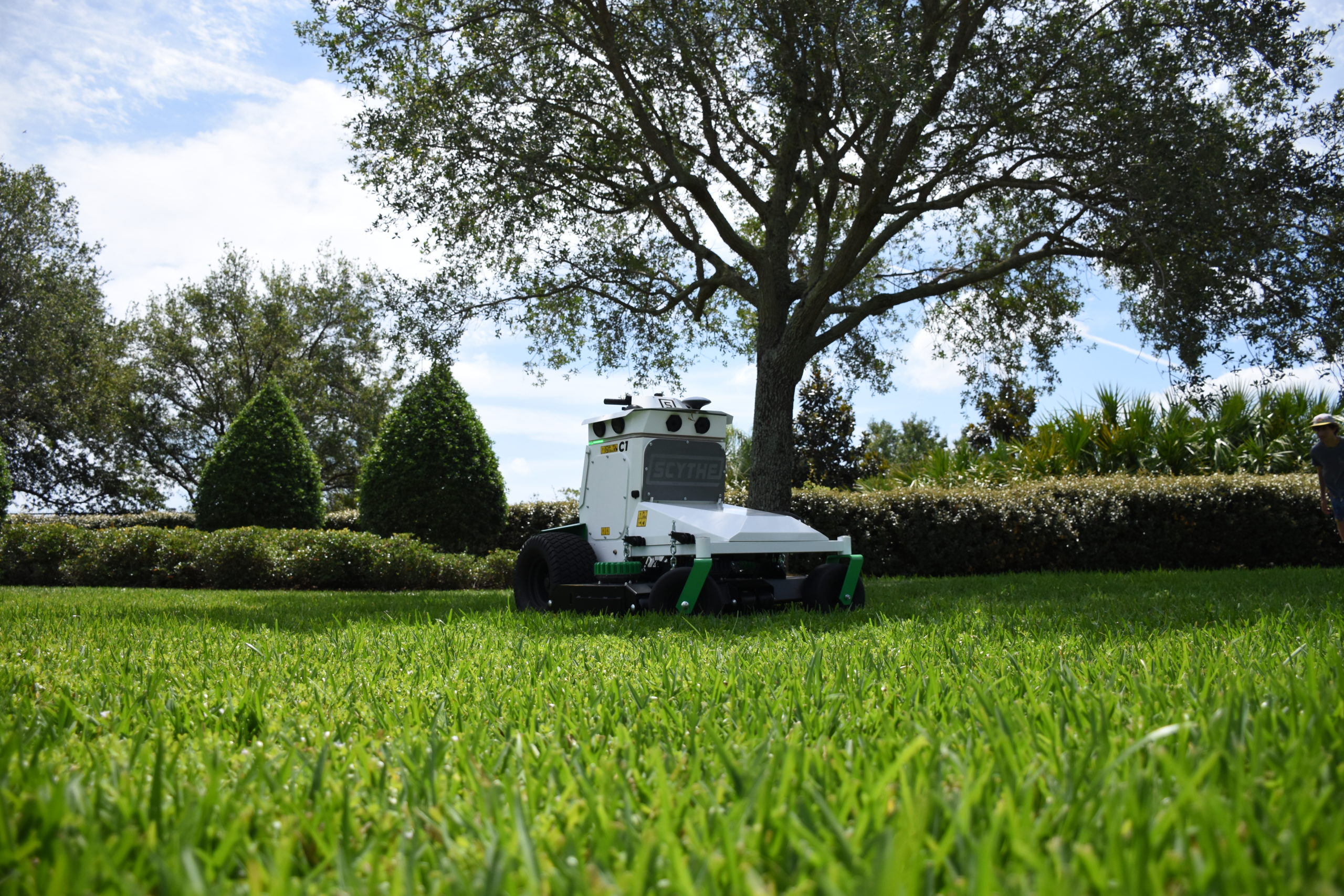When we imagine mowing the grass, we might think of our front yards. But, in the modern world, there’s a lot more green space than that. Commercial landscaping includes the greenspaces for hospitals, shopping centers, city parks, industrial centers, golf courses, and beyond. All spaces considered, the landscaping services industry is worth $105.1 billion, according to the IBIS World Landscaping Services Industry Report.
The industry has limitations, however. Though there’s a lot of grass to mow, landscaping businesses often face a shortage of skilled labor, limiting their business growth potential. And from an environmental perspective, even though the grass is green, the standard gas-powered tools of lawncare aren’t.
But new lawn care technology is changing that. Nature and technology don’t have to be at odds, especially in the world of landscaping, says Billy Otteman, Director of Marketing at Scythe Robotics in Boulder County, Colorado. Instead, technology can be used to better care for the environment and grow business.
Here’s how he describes the company’s mowing robot that’s taking on greenspace one yard at a time.
What is Scythe Robotics building?
We acknowledge that green spaces are some of our most frequented environments and that landscapers are environmental stewards. Even so, there hasn’t been a lot of innovation in the industry, leaving most landscapers stuck using gas-guzzling, high polluting equipment.
At Scythe Robotics, we build powerful tools designed to help take care of the planet more sustainably, starting with the commercial landscaping industry.
Our first green space management product, M 52, is a 52-inch commercial-grade mower that applies cutting-edge robotic and computer vision technology to outdoor equipment. This all-electric solution nearly eliminates emissions while expanding the amount of green space that landscapers can care for with the staff that they have.
How much does being in the Boulder ecosystem matter to you?
It’s critical.
The Boulder County robotics scene is blossoming right now, specifically in Longmont. The area has really become a hub for robotics talent, which gives us a lot of talent to tap into.
The other unique thing about being in Boulder County versus being in other robotics hubs or startup hubs like San Francisco or Boston is that it puts us in a place where outdoor environments are more easily accessible. The outdoor environment is important because it allows us to develop and test our products in different outdoor settings, bringing a different mentality to the product itself.
In San Francisco, for example, there are a lot of robotics companies focused on last-mile deliveries, or robots that can get products to doorsteps, whether via drones or sidewalk robots. But, when you take that robotic system and put it in an off-road environment, the challenge becomes entirely different.
We need people who understand the different types of outdoor environments, and we need access to those types of environments to be able to test, develop, and validate our products. Not to mention there are a lot of physical manufacturing capabilities in Boulder County.
So, I’d say both from a talent and a product development perspective, being where we are in Colorado is extremely important.
What else is coming for the company?
Right now, we’re laser-focused on landscaping as we scale the production of our first product, the 52-inch mower. But, we’ve got a big vision beyond that. From the 52-inch mower product, we’re building the autonomy stack to suit other applications within landscaping, like aeration, trimming and edging, which use similar hardware and software.
Beyond landscaping, we see a lot of opportunity in agriculture, which actually requires a good bit of mowing. From there, we see other adjacencies in construction and forestry, which again have very similar applications for electric power advances.
At Patents Integrated, we know how important IP can be for growing companies. We also know that, for many founders, the patent process can feel like scaling Mount Everest. Our approach is simple: to use our expertise to make entrepreneurship that much easier for you, helping you build a patent strategy that protects your work both now and down the road. Ready to take a smarter approach to IP? Click here to get started.





